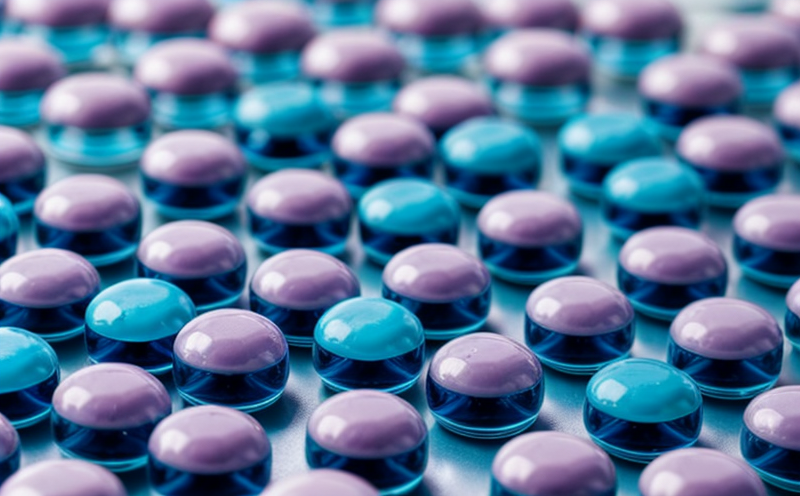PDA TR33 Rapid Microbiological Method Validation Testing
The Pharmaceutical Industry has seen significant changes over the years, with continuous efforts to streamline processes and enhance efficiency. PDA Technical Report (TR) 33 on Rapid Microbiological Methods for Use in Quality Control Laboratories is a pivotal document that guides pharmaceutical manufacturers towards adopting rapid microbiology methods (RMMs). This service focuses specifically on the validation of RMMs as per PDA TR33, ensuring compliance with current Good Manufacturing Practices (cGMP) and enhancing quality control.
The adoption of RMMs can lead to faster results, reduced turnaround times, and improved resource utilization. However, their implementation requires rigorous validation through a series of steps outlined by PDA TR33. This service provides comprehensive support for the validation process, ensuring that methods meet stringent criteria for accuracy, precision, and robustness.
Our team of experts ensures thorough testing under various conditions to confirm method performance across all expected scenarios. We use advanced laboratory equipment and follow internationally recognized standards such as ISO 17025 to validate RMMs according to PDA TR33 guidelines. Our approach guarantees that the validated methods are reliable, repeatable, and suitable for routine use in quality control laboratories.
By partnering with us, you can expect a seamless validation process tailored to your specific needs. We offer detailed reports that not only meet regulatory requirements but also provide insights into method performance, helping you make informed decisions about implementing RMMs within your organization.
Scope and Methodology
Scope: This service covers the validation of rapid microbiological methods (RMMs) in accordance with PDA Technical Report 33. The scope includes ensuring that these methods are suitable for use within quality control laboratories by demonstrating their accuracy, precision, robustness, and reproducibility.
| Validation Parameter | Description |
|---|---|
| Accuracy | The ability to produce results that are consistent with the true value of the analyte being measured. This involves assessing both bias and precision. |
| Precision | A measure of reproducibility, indicating how closely repeated measurements agree with each other under varying conditions. |
| Robustness | The capacity to remain unaffected by small changes in experimental conditions. This is crucial for ensuring that the method can handle real-world variations effectively. |
| Reproducibility | The extent to which results are consistent across different laboratories and operators. |
Methodology: The validation process begins with a comprehensive review of the proposed RMM against PDA TR33 criteria. This is followed by method development, optimization, and preliminary testing under controlled conditions. Once initial results are obtained, further validation steps include extensive performance evaluation across multiple parameters such as accuracy, precision, robustness, and reproducibility.
Throughout this process, we employ state-of-the-art laboratory equipment and follow strict adherence to ISO 17025 standards. Our team conducts rigorous testing under various conditions to ensure that the method performs consistently and reliably in real-world scenarios. Upon successful completion of all validation criteria, detailed reports are generated providing comprehensive insights into the performance of the validated RMM.
Customer Impact and Satisfaction
The implementation of rapid microbiological methods (RMMs) can lead to significant improvements in operational efficiency within pharmaceutical companies. By adopting these methods, organizations can reduce time-to-market for new products, minimize costs associated with production delays, and enhance overall product quality.
Our validation process not only ensures regulatory compliance but also provides valuable insights into the performance of RMMs. These insights help decision-makers in selecting appropriate methods that align best with their operational goals and strategic objectives. Customers benefit from faster access to validated data, enabling quicker decision-making processes and improved resource allocation.
We strive for excellence in every aspect of our service delivery, ensuring high levels of customer satisfaction through transparent communication, timely completion of projects, and adherence to international standards. Our team works closely with clients throughout the validation process, providing guidance and support as needed. Feedback from satisfied customers highlights our commitment to delivering top-notch services that meet or exceed expectations.
Environmental and Sustainability Contributions
The pharmaceutical industry plays a crucial role in ensuring public health worldwide while minimizing environmental impact. By adopting rapid microbiological methods (RMMs), manufacturers can contribute positively to both goals. These methods not only enhance operational efficiency but also reduce waste generation, energy consumption, and chemical usage during testing processes.
Our validation service supports environmentally friendly practices by promoting the use of validated RMMs that are proven reliable and efficient. This helps minimize unnecessary experiments and reagents, leading to reduced environmental footprint without compromising on quality standards. Additionally, our commitment to sustainability is reflected in our laboratory operations, which adhere strictly to ISO 17025 guidelines designed to promote best practices in analytical laboratories.
Through this service, we contribute towards reducing the carbon footprint of pharmaceutical manufacturing by streamlining testing procedures and ensuring that validated methods are used effectively. This aligns with broader industry efforts aimed at promoting sustainable development and responsible resource management.





